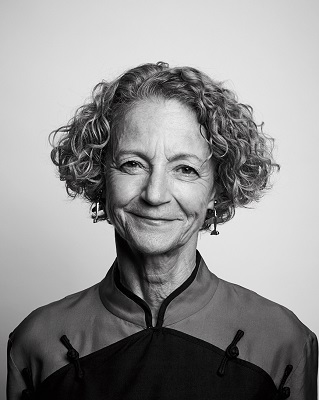Dr Dominique Estival
 | Research Fellow in Human-Machine Interaction Minding their language: how to ensure clear communication in aviation.Dominique Estival is both a pilot and a computational linguist who is working to understand the causes of miscommunication and build technologies that help people learn to communicate better. |
Overview
As a linguist who is also a pilot and a flight instructor, Dr Estival is finding new ways of supporting optimal communication in the aviation industry.
Her main field of research is computational linguistics, or natural language processing - that is, making computers understand and process human languages.
She applies this expertise to problems commonly encountered in aviation, such as miscommunication and misunderstandings between pilots and flight controllers.
She works at the interface between academic and industry research, on projects ranging from formal grammar development to machine translation tools or dialogue systems with virtual advisors.
I hope my research will lead to improved communication in aviation internationally, resulting in fewer flight delays, lower costs and a reduced risk of accidents.
Dr Estival joined the MARCS Institute in 2010, to manage AusTalk, a large state-of-the-art database of modern spoken Australian English from all around the country. It contains audio-visual data for 861 adult speakers from 15 different locations in all Australian states and territories, representing the regional and social diversity and linguistic variation of Australian English, including Australian Aboriginal English.
She then managed Alveo, an online infrastructure for accessing human communication datasets (speech, texts, music, video, etc.) and using specialised tools to search, analyse and annotate the data.
She also led a project to help the identification of foreign accents in Australian English and contributed to the Mental Health in Remote Community project.
Impact
Aviation is known for the radio communication code used by pilots and air traffic controllers internationally. Based on English, it was developed to prevent potentially catastrophic consequences of miscommunication and ambiguity. This code has been so successful that medicine has looked to aviation as a model for improving communication to prevent mishaps.
However, pilots and air traffic controllers do not always adhere to the strict standardised Aviation English code, and too often revert to conversational language. If their words are not clearly understood, especially by non-English speakers, there can be flight delays, reduced productivity, increased costs, and the risk of an accident.
Dr Estival and her colleagues study how pilots communicate, for example in a flight simulator or in recordings collected from international airports around the world.
The data is providing insights into the types of errors and deviations that are commonly made, which can then be addressed through improved training and testing.
Dr Estival is a language assessor with the Australian Civil Aviation Safety Authority (CASA), and has helped develop training and testing material for language proficiency assessors to ensure optimal language proficiency in trainee pilots.
In 2008, she established OzCLO, the Australian Computational Linguistics Olympiads, which has now expanded to more than 1,500 students participating each year.
Career
Dr Estival received her PhD in linguistics from the University of Pennsylvania in 1986 with a thesis on diachronic syntax.
She then embarked on a career as a computational linguist. She started in a machine translation company (Weidner, Chicago, USA; 1986-88), where she was in charge of the French-English system and then went to Wang Laboratories (Boston, USA; 1988-89), where she worked on the morphological component and the lexicon for authoring tools.
She moved to ISSCO (Geneva, Switzerland; 1989-1995), one of the oldest research centres in Natural Language Processing in Europe. While there, her main strand of research concerned grammar formalisms for natural language processing and she took part in several European linguistic engineering projects, in particular GRAAL and TSNLP. She also participated in the design and development of the ELU system, and between 1993 and 1996, was a member of the Grammar Formalism Working Group in the European EAGLES initiative.
In 1995, she came to Australia to take up the position of lecturer in Computational Linguistics at the University of Melbourne (1995-1998), which was partly funded by the Microsoft Research Institute. Here her research pursued the investigation of the computational modelling of language change, for which she received a SIG in 1996 and a Small ARC grant in 1997. She also led a joint project with the Computer Science Department for a Natural Language Interface to a Small Robot (Estival, 1998).
Since then, she has been involved in helping establish Natural Language Processing and Language Technologies in Australia, in particular with the founding of ALTA, the Australasian Language Technology Association, in 2001, and OzCLO, the Australian Computational and Linguistics Olympiad, in 2008.
She has been associated with the Language Technology Group (LTG) at Macquarie University since 1996, becoming a board member when she took the position of Head of the Natural Language Group at Syrinx Speech Systems in 1999. She was appointed Associate Researcher and Visiting Fellow at Macquarie between 2003 and 2008, while she was a Senior Research Scientist at the Defence Science and Technology Organisation (DSTO) and then Senior Manager at Appen in Sydney.
As an Honorary Associate in the Department of Linguistics at the University of Sydney, she taught the “Syntax” and “Syntax of English” subjects in 2008-2010.
She joined the MARCS Institute in 2010, where she managed AusTalk, a large speech data collection project, and Alveo, a Human Communication Virtual Laboratory, as well as other research projects in Speech and Language Processing.
Read more
www.flightsafetyaustralia.com/2019/04/communication-its-what-we-do-all-the-time/
www.flightsafetyaustralia.com/2019/01/cracking-the-code-aviation-english/
www.elespanol.com/ciencia/tecnologia/20161014/162984564_0.html
Collaboration
Dr Estival collaborates widely with other disciplines such as cognitive psychology, speech and language technologies, aviation and software development.
Connect
| d.estival@westernsydney.edu.au |






